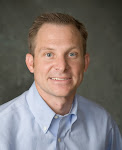
The group spent nearly the entire day on Auburn Avenue--the heart of Black Atlanta over the course of the twentieth century. Professor Bond set the tone with some remarks to remind us of the significance of the area beyond it being the location of the Ebenezer Baptist Church and birthplace of Martin Luther King, Jr. The area now also is the home of The King Center, National Parks Service Visitor's Center, and Dr. and Mrs. (Coretta Scott) King's burial site.
The Parks Service has a wonderful Civil Rights museum complete with documentary footage of the Movement from the era of Jim Crow to King's assassination in 1968 running on several different loops. In addition, it has several interactive features that allow guests to respond to the exhibits. One card, titled "Make Dr. King's dream come true," asks you to "pledge to honor Martin Luther King, Jr.'s life and non-violent work by helping to make this world a better, more just place for all people," by respecting all people; living a life of loving, not hating; choosing patience over anger, non-violence over force; and actively helping to promote freedom, justice, and world peace. I left ready to engage that charge at work, at home, in my community, in my world.

Late morning, the group attended the New Ebenezer Baptist Church (set across the street from the original church of both King and his father). The congregation was overwhelmingly welcoming to our group. I got the feeling that they are very accustomed to visitors, expecting to be moved by the Spirit. I was not disappointed. The choir was amazing. In addition to several anthems throughout the service and soft background during prayers, they sang a version of "If I Can Help Somebody" that had the hair standing up on my arms. Soloist Mary Gurley was outstanding. The Rev. Raphael Warnock--senior pastor of Ebenezer--gave the sermon, which reflected his thoughts on the "Black Church Week of Prayer for the Healing of AIDS." It was stirring. He preached from John's gospel--chapter 9--the story of Jesus healing a blind man and his lessons to the Disciples who were overly concerned with the nature of the man's sin. Bringing it to the contemporary context in which 1 of 50 African-American men are infected with AIDS/HIV and 1 of 250 African-American women face the same fate, Warnock argued that "silence in the face of suffering is the real sin." He invited the congregation to participate in church-wide AIDS testing following the service. Among those answering the call were Julian Bond and Congressman John Lewis.
After the service, small groups toured the birthplace of Martin Luther King, Jr.--a site not to be missed. Just a couple of blocks from Ebenezer sits this small Black neighborhood that reflects the economic dynamics of the community in the early twentieth century. The King's upper middle-class dwelling sits across the street from a series of small, shotgun homes that houses the working-class folk of the neighborhood.

Tomorrow--a stop in Tuskegee, Alabama, then on to Montgomery


No comments:
Post a Comment